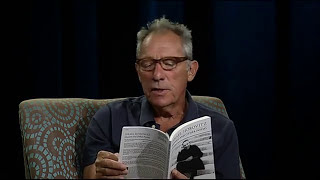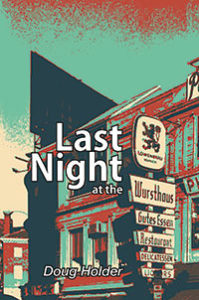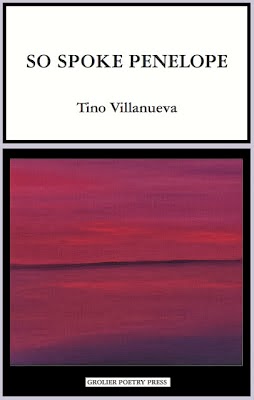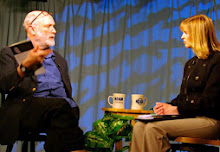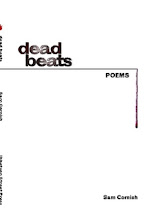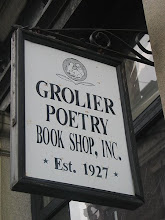The Red Letters
In ancient Rome, feast days were indicated on the calendar by red letters.
To my mind, all poetry and art serves as a reminder that every day we wake together beneath the sun is a red-letter day.
––Steven Ratiner
Red Letter Poem #207
Along the Coast
Though the science is uncertain
the molecules feel more chaotic here,
the acrid smell of empty vessels
heavy on everyone’s mind.
Plastic swirls,
bounces on waves—nothing can
contain it. It follows the currents
that course toward the equator,
belt that threatens to burst.
The chop of surf unsettles us
yet somehow slows our hearts,
more certain now of—dare I say it?—
death. But that would be too obvious.
And so,
in vinyl chairs unraveling,
their strands adrift in brackish air,
we sit in silence as doorless Jeeps
drive slowly along the graveled beach,
half the air let out of their tires.
––Wyn Cooper
Perhaps you’ve heard of it: a newly-formed island adrift between Hawaii and California, with an estimated surface area of 1.6 million square kilometers. That’s twice the size of Texas or three times the size of France. It’s called the Great Pacific Garbage Patch––the largest accumulation of ocean plastic in the world. But it’s only one of five such floating trash conglomerates bedeviling our seas––yet more proof (as if further proof were needed) of how our ecological blindness has allowed us to bring our planet to the brink of disaster. More than a half-century has passed since we received the first image of our lovely blue-green home, diminutive in the vastness of space, as humans gazed back from the Lunar surface. And it’s been nearly as long since the first Earth Day celebration was created––largely in response to this celestial event––hoping to generate a planetary commitment to safeguard our fragile environment. Yet we remain as short-sighted as ever, allowing political deceit, corporate profits, and our commitment to own material ease to outweigh the dire warnings from the scientific community. Oceans become polluted, air is fouled, drinking water tainted, and the man-made effects of global warming threaten destruction on an unimagined scale.
So how are we to process this? And how might one individual poet respond? In Wyn Cooper’s new poem, we find ourselves joining him on some unspecified shore, gazing at the once-unsullied ocean, seated on our (oh-so-ironic) plastic chairs. We sense the resonance between personal trauma and that of the wider world. How far away is this scene from the sort of Mad Max dystopia that sometimes troubles our sleep––where natural resources are so depleted, survival is a matter of every-man-or-woman-for-themselves? The poet presents us with this ecological fever-dream, perhaps in hope of a shared moment of recognition; the poem is a dramatic vantage point from which to marvel at what’s befallen us. I always relish the bracing imagery, dark humor, edgy syntax, with which Wyn shapes his poetic visions. Midway into one of his texts, we’ll often feel ourselves suddenly on the psychic hot seat, the rising electrical jolt enough to startle our complacent minds. Or, at least, that is the hope: that the quiet intensity of a poem might get under our skins in ways the news headlines clearly have not.
Wyn is the author of five books of poetry, the most recent being Mars Poetica (White Pine Press), as well as the novel Way Out West published by Concord Free Press. His poems, stories, essays, and reviews have appeared in scores of publications such as The New Yorker, The Paris Review, Poetry, and AGNI. But his lyricism has carried him into songwriting as well, with a pair of recordings featuring the voice of the novelist Madison Smartt Bell. There’s no telling where his poems might travel: “Fun”, from his debut collection, was turned into the Grammy-winning song “All I Wanna Do” by Sheryl Crow. A committed educator as well, Wyn has taught at Bennington and Marlboro Colleges, the University of Massachusetts/Amherst, the University of Utah, and the Frost Place. It is a bittersweet pleasure to share his new work, wondering whether mere language is still capable of prying open the heart. I’m sure you, too, are praying each one of us will realize that we’ve no choice but to shape our actions in order to become part of the solution––even as we pressure our leaders to finally make good on decades of empty promises. Facing this Goliath of a challenge, even a mere poem can be a stone in our sling. May it come about before (as the poet suggests) the planet’s equatorial belt finally does burst, leaving us all naked, un-homed, and cursed by hindsight.
Red Letters 3.0
* If you would like to receive these poems every Friday in your own in-box – or would like to write in with comments or submissions – send correspondence to:
steven.arlingtonlaureate@gmail.com
* To learn more about the origins of the Red Letter Project, check out an essay I wrote for Arrowsmith Magazine:
https://www.arrowsmithpress.com/community-of-voices
and the Boston Area Small Press and Poetry Scene
http://dougholder.blogspot.com
* For updates and announcements about Red Letter projects and poetry readings, please follow me on Twitter
@StevenRatiner



